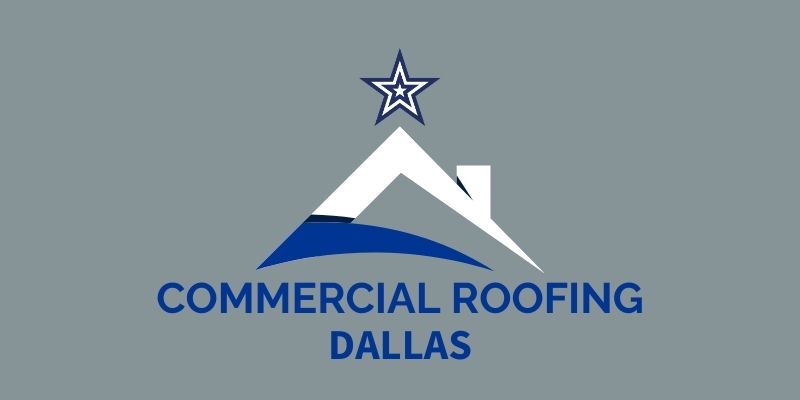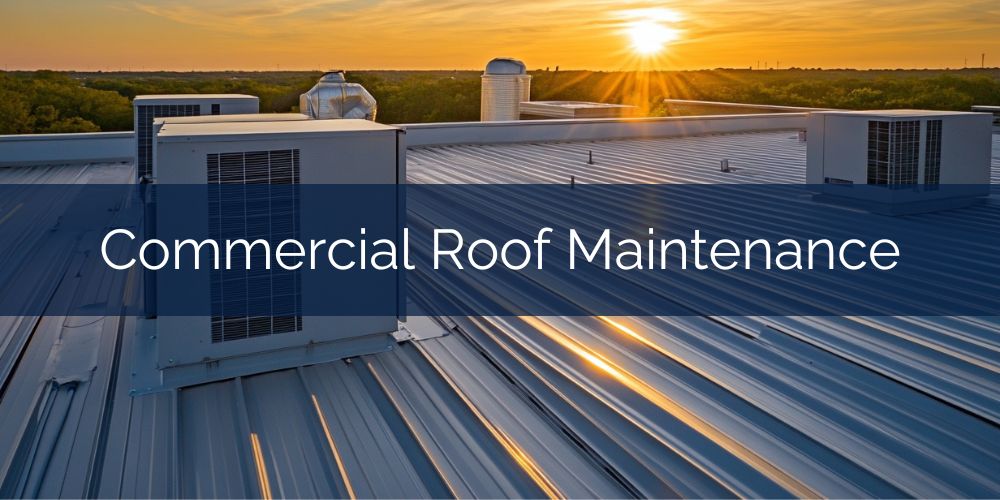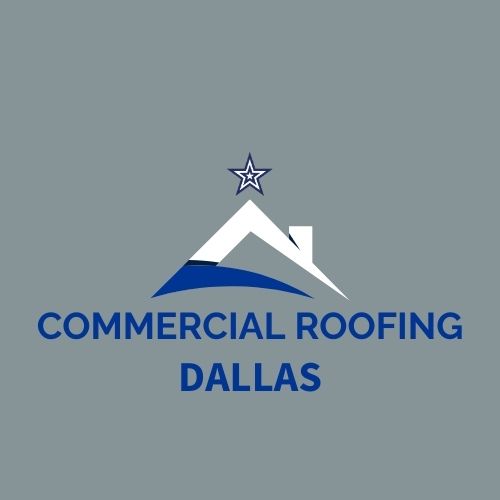Commercial roof maintenance involves regular inspections, cleaning, repairs, and preventative measures to ensure the longevity and performance of a commercial building's roof. These services help identify potential issues such as leaks, water damage, and structural weaknesses before they become major problems. Regular maintenance can extend the life of the roofing system and protect the building's interior from weather-related damage. By addressing minor repairs promptly, commercial roof maintenance helps avoid costly replacements and enhances energy efficiency. Commercial Roofing Dallas provide commercial roof maintenance services across the Dallas, Texas area.
What Is Commercial Roof Maintenance?
Commercial roof maintenance refers to the regular inspection and upkeep of commercial roofing systems to ensure their longevity, functionality, and safety. This process typically includes cleaning debris from the roof surface and gutters, checking for damaged roofing materials, and identifying potential leaks or weaknesses. Regular maintenance helps prevent costly repairs by detecting issues early before they escalate into major problems. It also involves checking the integrity of roof flashings and seals, which are critical in preventing water infiltration. By staying proactive with maintenance, building owners can extend the lifespan of their roofs and ensure they comply with warranty requirements. Additionally, commercial roof maintenance often includes updating insulation or addressing energy efficiency concerns to reduce overall building costs.
In Dallas, Texas, commercial roof maintenance is particularly important due to the region's climate characterized by high temperatures, humidity, and occasional heavy rainfall. Roof maintenance practices such as ensuring proper ventilation and selecting materials resistant to UV radiation are critical to withstand the local climate conditions.
Have a question about an upcoming project?
How Often Should Commercial Roofs Be Maintained In Dallas?
Commercial roofs in Dallas should be inspected and maintained at least twice a year. Due to the city's seasonal weather variations, including intense heat and occasional storms, regular maintenance helps prevent damage and extends roof lifespan. Additionally, scheduling inspections after severe weather events can help identify and address any immediate concerns.
- Weather Resilience: Protects against Dallas's extreme heat and seasonal storms.
- Leak Prevention: Early detection of potential leaks saves costly repairs.
- Energy Efficiency: Keeps the building cooler and reduces energy costs.
- Structural Integrity: Regular inspections ensure the roof's overall health and safety.
- Warranty Compliance: Regular maintenance often required to maintain warranty coverage.
1. Weather Resilience: Protects against Dallas's extreme heat and seasonal storms.
Weather resilience refers to the ability of commercial roofing systems to withstand and protect against the intense heat and severe seasonal storms characteristic of Dallas, enhancing longevity and performance. Regular maintenance of commercial roofs in Dallas is vital because the weather conditions can be harsh, putting significant stress on roofing materials. Consistent inspections help identify and rectify issues caused by extreme temperatures and storm damage, ensuring the roof remains resilient and functional. To enhance weather resilience, commercial roofs in Dallas benefit from the application of reflective coatings and storm-resistant materials. Such measures not only improve temperature management within buildings but also safeguard against wind uplift and water infiltration during severe weather events. Consequently, investing in these weather-resistant features reduces long-term repair costs and extends the roof's service life.
2. Leak Prevention: Early detection of potential leaks saves costly repairs
Leak prevention involves regularly inspecting commercial roofing systems to identify and address potential vulnerabilities, ensuring that small problems are resolved before they escalate into costly repairs. Frequent maintenance checks in Dallas can significantly benefit commercial roofs by detecting leaks early, reducing expensive repairs or replacements. The city's weather fluctuations, including heavy rains and temperature shifts, make routine inspections critical to preserving the roof's integrity and extending its lifespan. Proactive leak prevention strategies, such as routine inspections and the immediate repair of minor damages, can help avoid water infiltration, mold growth, and structural damage. A comprehensive maintenance plan tailored to the specific conditions of Dallas, including its heavy rain and humidity, enhances the durability of commercial roofing systems. By investing in regular maintenance, businesses can save on more substantial repair costs and ensure a safer environment within their buildings.
3. Energy Efficiency: Keeps the building cooler and reduces energy costs
Energy efficiency in commercial roofing is the capacity of a roof to reduce energy consumption by reflecting more sunlight and absorbing less heat, thus lowering cooling costs. In Dallas, where high temperatures are common, energy-efficient roofing can drastically reduce the cooling demands of commercial buildings. By minimizing heat absorption, it helps maintain a stable indoor temperature, which can lower the frequency and intensity of HVAC system usage. This contributes to a significant reduction in energy bills for businesses, making energy-efficient roofs a wise financial investment. The use of such roofing systems helps combat the urban heat island effect by decreasing the ambient temperature around the building. Implementing energy-efficient roofing also aligns with sustainable building practices, offering both economic and environmental benefits, particularly in hot climates like Dallas.
4. Structural Integrity: Regular inspections ensure the roof's overall health and safety
Structural integrity refers to the soundness of a roof's construction, which is maintained through regular inspections to identify and address potential issues before they compromise the roof’s safety and functionality. Regular maintenance of commercial roofs in Dallas, where weather conditions like intense heat and occasional storms can pose risks, is crucial to preserving their structural integrity. Frequent inspections safeguard against damage from weather-induced wear and tear, ensuring roofs remain durable and safe for the buildings they cover. By conducting regular inspections, building owners can detect early signs of damage or weaknesses, such as water intrusion, damaged membranes, or faulty flashings. Timely repairs based on inspection findings prevent minor issues from escalating into costly structural failures. Maintaining structural integrity through proactive inspections not only optimizes the safety and lifespan of commercial roofing systems but also helps avoid unexpected operation disruptions and repair costs.
5. Warranty Compliance: Regular maintenance often required to maintain warranty coverage.
Warranty compliance refers to the requirement for consistent upkeep of a commercial roofing system to ensure that the warranty remains valid, typically through routine inspections and necessary repairs. Given Dallas's challenging weather patterns, including intense sun exposure and occasional hailstorms, regular maintenance of commercial roofs is crucial to uphold warranty standards. These environmental factors heighten the need for timely inspections and corrective actions to prevent potential damage, thus maintaining warranty coverage. Failing to conduct regular maintenance can lead to unaddressed damages that may void the warranty, leaving property owners vulnerable to costly repairs. Keeping accurate records of all maintenance activities serves as evidence of compliance with warranty terms. Additionally, collaboration with a manufacturer-approved contractor ensures that the roof is maintained according to the specific guidelines, thus safeguarding warranty benefits.
What Are Key Maintenance Needs For Dallas Commercial Roofs?
Key maintenance for Dallas commercial roofs is regular inspections and addressing weather-related damages promptly. Due to Dallas's varying climate, it's essential to schedule consistent inspections to ensure roofs are in optimal condition. Addressing issues as they arise can help prevent more costly repairs or replacements in the future.
- Regular Inspections: Detect early signs of damage due to Dallas’s fluctuating weather conditions.
- Debris Clearance: Remove leaves and debris to prevent water pooling and drainage issues.
- Seal Leaks: Promptly address any leaks to prevent water damage and structural issues.
- Flashings Repair: Ensure flashings are intact to prevent water seepage around roof penetrations.
- Gutter Maintenance: Keep gutters clean to enable efficient water drainage away from the roof.
1. Regular Inspections: Detect early signs of damage due to Dallas’s fluctuating weather conditions.
Regular inspections involve a systematic evaluation of a commercial roof to identify any early signs of deterioration or damage caused by Dallas’s unpredictable weather patterns, ensuring timely maintenance and repairs. Regular inspections are crucial for Dallas commercial roofs given the city’s rapidly changing weather, which can include thunderstorm activity and temperature extremes that stress roofing materials. Early detection of issues such as leaks, structural weaknesses, or damage ensures that necessary repairs can be undertaken before these problems exacerbate, upholding the structural integrity and lifespan of the roof. In addition to protecting the roof's integrity, these inspections help in maintaining energy efficiency by addressing any damages that could lead to inadequate insulation or drafts. By identifying potential weak points, building managers can also implement preventive measures against potential water damage that severe weather conditions might cause. Accurate documentation of inspection results assists in tracking roof health over time, further aiding asset management and budget planning.
2. Debris Clearance: Remove leaves and debris to prevent water pooling and drainage issues.
Debris clearance involves the regular removal of leaves, branches, and other debris from a commercial roof to prevent water pooling and potential drainage problems that could lead to structural damage. Proper debris clearance is crucial for maintaining the integrity of commercial roofs in Dallas due to its unpredictable weather patterns, which can contribute to debris accumulation. Ensuring efficient drainage by regularly clearing debris helps prevent water pooling, which is critical to extending the lifespan of the roof and avoiding costly repairs. Regular inspections and cleaning are vital because pooling water can accelerate wear and potentially infiltrate through seams or joints, leading to interior damage. Scheduling consistent maintenance can minimize these risks by ensuring that drains and gutters remain free-flowing, maintaining effective water removal even during heavy rainfall. This proactive approach not only preserves the roof’s longevity but also safeguards the building's infrastructure from unnecessary water-related issues.
3. Seal Leaks: Promptly address any leaks to prevent water damage and structural issues
Seal leaks refers to the critical task of fixing any openings or damages in a commercial roof to prevent infiltration of water, which can cause interior damage and structural weakening. For commercial roofs in Dallas, addressing leaks swiftly is essential due to the potential for severe weather changes that can exacerbate even minor roofing issues. By ensuring leaks are promptly sealed, building owners can protect the structural integrity of their commercial properties and avoid costly damage from water infiltration. Proactive leak management can mitigate risks such as mold growth, insulation damage, and material deterioration, which can compromise the functionality and lifespan of a roof. Regular inspections and maintenance enable early leak detection, allowing for timely repairs and enhancing the overall durability and reliability of the roofing system. Building managers can maintain a safe and efficient environment for their occupants by prioritizing leak prevention and repair.
4. Flashings Repair: Ensure flashings are intact to prevent water seepage around roof penetrations.
Flashing repair involves maintaining and ensuring the integrity of metal or plastic structures that direct water away from critical areas on commercial roofs, such as chimneys, vents, and skylights, to prevent water leaks and structural damage. Flashings are crucial maintenance needs for Dallas commercial roofs due to the area's varied weather conditions, which can stress roof components. Maintaining functional flashings reduces the risk of leaks that could lead to significant damage inside the building. Regular inspections ensure that these protective elements are not compromised by heavy rains or wind-driven debris. Checking flashings for signs of wear and tear is essential because their failure could lead to costly water damage. Routine maintenance ensures that any gaps, rust, or peeling are addressed before they become larger issues. By keeping flashings in optimal condition, commercial building owners can protect their roofs from water intrusion, thereby extending the roof's overall lifespan and maintaining operational efficiency.
5. Gutter Maintenance: Keep gutters clean to enable efficient water drainage away from the roof.
Gutter maintenance involves regularly cleaning gutters to ensure they efficiently direct rainwater away from the roof and building structures, preventing water damage and structural deterioration. Maintaining functional gutters is crucial for protecting commercial roofs in Dallas from water damage caused by the area's sudden and heavy rainfalls. Properly maintained gutters prevent water accumulation, which can lead to roof leaks, mold growth, and damage to the building’s foundation. In commercial settings, clogged gutters can cause severe leaking issues, leading to costly repairs and potential downtime for businesses. Implementing a regular gutter maintenance schedule helps avoid these risks and extends the lifespan of the roof by proactively managing excess moisture. Regular inspections and removal of debris such as leaves and dirt are essential for maintaining optimal gutter functionality throughout different seasons.
How Does Dallas Weather Impact Commercial Roof Maintenance?
The extreme weather conditions in Dallas necessitate regular commercial roof maintenance to ensure durability and performance. Dallas experiences a range of weather conditions, from scorching summers to severe hailstorms, both of which can have significant impacts on roofing materials. Regular inspections and maintenance help to detect damage early and extend the life of a commercial roof.
- Heat Stress: Prolonged high temperatures can cause roofing materials to expand and crack.
- Storm Durability: Strong winds and hailstorms may damage roofing structures and require immediate repairs.
- Water Intrusion: Heavy rainfall can lead to leaks, highlighting the need for efficient drainage systems.
- UV Radiation: Intense sunlight can degrade roofing materials over time, necessitating protective coatings.
- Temperature Fluctuations: Rapid changes between hot and cold stress the roofing material, causing wear.
1. Heat Stress: Prolonged high temperatures can cause roofing materials to expand and crack.
Heat stress refers to the damage sustained by roofing materials due to consistent exposure to high temperatures, leading to expansion and subsequent cracking. Dallas experiences intense heat during the summer months, which can exacerbate the issue of heat stress on commercial roofs. As materials like modified bitumen expand and contract with temperature fluctuations, they risk cracking and creating vulnerabilities in the roofing system. To combat heat stress, it’s essential to employ materials engineered for thermal flexibility and incorporate reflective roof coatings that minimize heat absorption. Regular maintenance checks should focus on identifying early signs of expansion damage so that timely repairs can be made. Implementing these measures helps ensure the longevity and effectiveness of commercial roofs exposed to harsh weather conditions in Dallas.
2. Storm Durability: Strong winds and hailstorms may damage roofing structures and require immediate repairs.
Storm durability refers to the ability of a commercial roofing system to withstand severe weather conditions, such as strong winds and hail, which could cause immediate damage requiring prompt attention. In Dallas, where severe weather events like hailstorms are common, the need for commercial roofing systems to have strong storm durability is crucial to minimize potential damage and avoid costly repairs. The local climate demands that building owners are proactive in selecting roofing materials and systems that can effectively resist high winds and hail. Implementing regular maintenance and inspections can help identify vulnerabilities within the roofing structure before a storm occurs, allowing for preemptive measures to reinforce and protect the roof. Selecting the appropriate roofing materials—such as impact-resistant membranes or coatings—can significantly enhance a roof's resilience against storm-related damage. Comprehensive insurance policies and rapid response repair plans are also vital to manage unforeseen damage efficiently.
3. Water Intrusion: Heavy rainfall can lead to leaks, highlighting the need for efficient drainage systems
Water intrusion refers to the penetration of water into a building through vulnerabilities in the roofing system, often exacerbated by inadequate drainage during heavy rainfall, leading to leaks and potential structural damage. Dallas's weather, with its periodic intense rainfalls, necessitates heightened attention to water intrusion issues in commercial roofing. Without efficient drainage systems, the risk of leaks increases significantly, causing deterioration of roofing materials and potential damage to the building's interior. Ensuring that drainage systems are well-maintained and properly functioning is crucial to protect commercial properties from water damage. Proactive measures, such as regular inspections and cleaning of gutters and downspouts, help prevent clogging that can lead to water pooling and eventual leaks. The installation of high-capacity drainage solutions can further fortify a commercial roof against the challenges posed by heavy rainfall in the region. Being diligent in these maintenance practices not only preserves the roof's integrity but also extends its lifespan and minimizes costly repairs.
4. UV Radiation: Intense sunlight can degrade roofing materials over time, necessitating protective coatings
UV radiation refers to the harmful rays from the sun that can cause roofing materials to deteriorate, leading to the need for protective coatings to maintain their integrity over time. Dallas's weather, characterized by harsh sunlight, greatly influences commercial roof maintenance as it exacerbates the effects of UV radiation. Intense and prolonged exposure to sunlight accelerates the degradation of roofing materials, making protective coatings essential for preserving the roof's lifespan and performance. To guard against UV-induced damage, commercial buildings should invest in high-quality protective coatings for their roofing systems. These coatings act as a barrier against the sun’s rays, helping to prolong the durability and effectiveness of the roof. Regular maintenance and inspections can detect early signs of UV-related wear, enabling timely interventions to prevent further degradation and costly repairs.
5. Temperature Fluctuations: Rapid changes between hot and cold stress the roofing material, causing wear.
Temperature fluctuations are the frequent alternation between hot and cold weather conditions that can weaken roofing materials, leading to accelerated degradation and potential failure. In Dallas, where temperature swings are common, commercial roofs are exposed to frequent thermal expansion and contraction cycles. This constant stress can cause reduced performance and longevity of roofing systems, necessitating regular maintenance to address emerging issues before they lead to more significant damage. Regular inspections are vital to spot signs of stress, such as splitting or blistering, that occur due to these temperature shifts. Investing in materials that offer increased thermal resilience can mitigate some of the impacts, improving lifespan and reducing repair costs. Additionally, applying a reflective coating can help manage surface temperatures, minimizing the rate of thermal expansion and contraction the roofing materials must endure.


